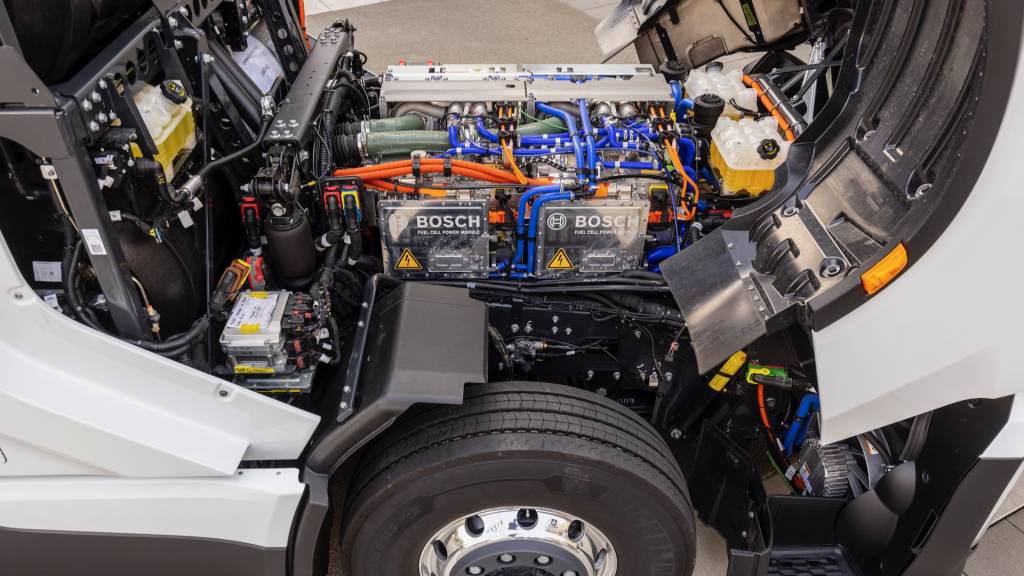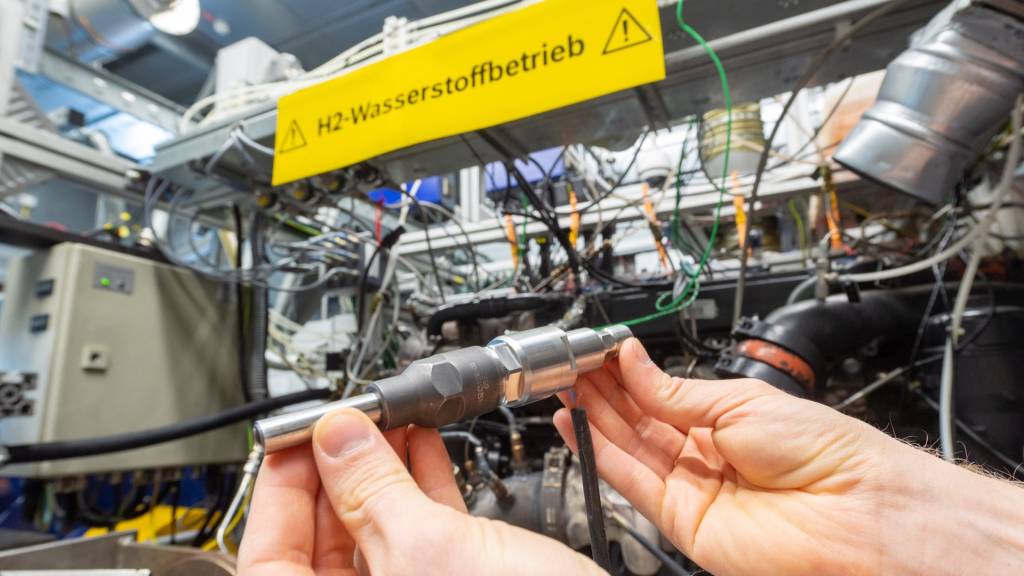Automotive provider Bosch expects hydrogen tech—together with each gas cells and hydrogen inside combustion—to play an enormous function sooner or later trucking trade.
The corporate expects gross sales of $3.5 billion from gas cells, hydrogen combustion engines, and electrolyzers that make hydrogen, based on a press launch issued final week that introduced the beginning of fuel-cell module manufacturing at Bosch’s Stuttgart-Feuerbach facility in Germany.
These first fuel-cell modules will go to Nikola, which plans to start out manufacturing of its Tre Class 8 fuel-cell semi truck in Coolidge, Arizona, later this yr. Nikola additionally has a license to fabricate Bosch gas cells at that location. Bosch additionally plans to fabricate fuel-cell parts at its personal U.S. plant in Anderson, South Carolina.

Bosch hydrogen fuel-cell powertrain for semi vans
The corporate expects that globally one in 5 new vans weighing greater than six tons can be bought with a fuel-cell powertrain by 2030. However Bosch can be investing in hydrogen combustion that, as a substitute of feeding hydrogen right into a gas cell to generate electrical energy, merely burns it in an internal-combustion engine rather than diesel or gasoline.
Bosch plans to launch a hydrogen combustion engine in 2024. The corporate claims to have 4 orders for “manufacturing tasks” to this point, and expects six-figure gross sales volumes by 2030.
“A hydrogen engine can do the whole lot a diesel engine does, however on high of that, it’s local weather impartial,” Markus Heyn, chairman of Bosch mobility, stated in an announcement. That leaves out the emissions which are a byproduct of hydrogen combustion, nevertheless. Hydrogen combustion engines nonetheless produce pollution like NOx—the well being and local weather hazards of which had been highlighted within the Volkswagen diesel emissions scandal.

Bosch hydrogen internal-combustion engine
Bosch was implicated as a provider to VW for diesel-powertrain parts, however in 2019 the corporate put the diesel scandal behind it with an announcement to help EVs and fuel-cell automobiles. However in 2021 it additionally stated that it could proceed to speculate in combustion-engine tech into the 2040s. This challenge cements why.
Bosch’s curiosity in hydrogen for large purposes like industrial vans is supported by some evaluation. Some high power consultants like these on the Rocky Mountain Institute (RMI) count on inexperienced hydrogen to scale up this decade, offering a provide of hydrogen that can be really cleaner than diesel. Along with fuel-cells for trucking, hydrogen may progressively substitute different liquid fuels for airplanes, trains, and different massive transport the place batteries aren’t sensible.
Not everybody agrees that hydrogen will go massive this time. Some see the broader availability of megawatt charging for battery-powered semis as making all of the hurdles of a hydrogen infrastructure not definitely worth the bother.
